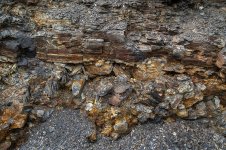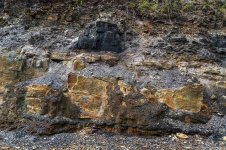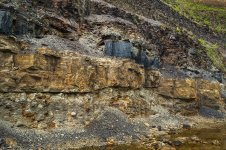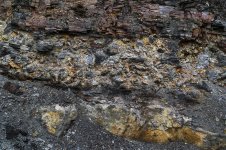rjw
New member
Browsing through a technical report on mine water rebound and there is a footnote that says:
?Goaf and ?gob? are both derived from the Welsh word ?ogof?, meaning a cave.
can anyone confirm or deny? Various online dictionaries say origin unknown for goaf. The word goaf seems to be the common term in Welsh collieries, did it spread from there to other coalfields? Or is there no Welsh connection at all and the words arose elsewhere?
?Goaf and ?gob? are both derived from the Welsh word ?ogof?, meaning a cave.
can anyone confirm or deny? Various online dictionaries say origin unknown for goaf. The word goaf seems to be the common term in Welsh collieries, did it spread from there to other coalfields? Or is there no Welsh connection at all and the words arose elsewhere?





